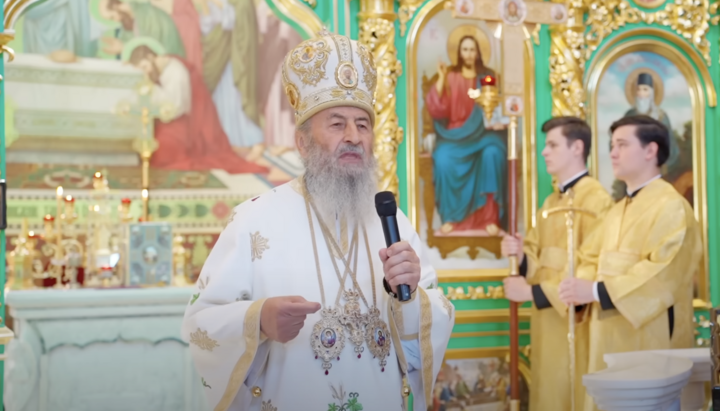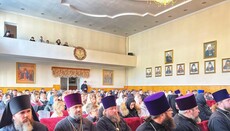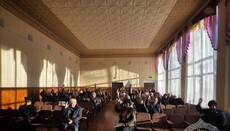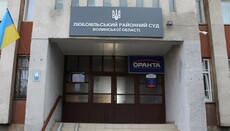His Beatitude: Even if the heart refuses, we must forgive

His Beatitude Onuphry, in his sermon, called on the faithful to forgiveness in order to receive God’s mercy.
On August 24, 2025, His Beatitude Metropolitan Onuphry, Primate of the UOC, delivered a sermon in the Agapitus Church of the Kyiv-Pechersk Lavra dedicated to the Gospel parable of the unmerciful debtor. In his address, the Primate explained to the faithful the spiritual meaning of Christ’s parable about the king and two debtors, emphasizing the necessity of forgiving our neighbor in order to receive God’s forgiveness.
He stressed that repentance alone is not sufficient for the forgiveness of sins – one must also forgive one’s neighbor. “If we do not forgive our neighbor, then God does not forgive our sins. This happens not because the Lord does not want to forgive, but because we cannot contain forgiveness within ourselves. If we cannot show a small forgiveness toward our neighbor, how can we receive the great forgiveness?” Metropolitan Onuphry explained.
His Beatitude paid particular attention to situations where it is difficult for a person to forgive a serious grievance. “It may happen that the grievance is so heavy that the person cannot – the heart refuses to forgive. With the mind he understands that he must forgive, God commands to forgive, yet the heart resists. Let it be so. Still, with the mind one must say: ‘Yes, Lord, I cannot yet humble my heart, but with my mind I understand and confess: I forgive my neighbor,’” the Primate declared.
Calling the faithful to spiritual labor over themselves, Metropolitan Onuphry noted: “The Lord has given us free will so that we compel ourselves to do what must be done. We must compel ourselves to do good. A person must always compel himself.” The Primate stressed that forgiveness is not merely an emotion but a conscious decision that a person can make even against the pull of his feelings.
His Beatitude Onuphry also warned of the consequences of unforgiveness: “If there is no forgiveness, we will simply destroy ourselves with mutual malice. Forgiveness destroys sins, but anger and cruelty multiply sins that ruin a person.”
In conclusion, the Primate urged the faithful to live a life of prayer, fasting, and repentance, forgiving others their debts, so as to be found worthy of “eternal salvation in heaven in Christ Jesus.”
The sermon was based on the Gospel parable from the 18th chapter of the Gospel of Matthew, where Christ teaches the necessity of forgiving “up to seventy times seven.”
Earlier, the UOJ reported that, according to His Beatitude, if one lives according to the laws of holiness, one becomes holy oneself.











